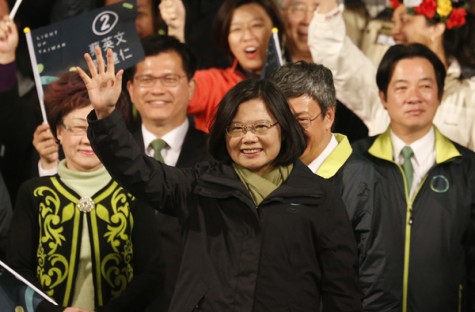
On 16 January, presidential and parliamentary elections were held in the Republic of China (ROC, commonly referred to as “Taiwan”). The end result was what the incumbent Kuomintang (KMT, Chinese Nationalist Party) government exactly feared; the opposition Democratic Progressive Party (DPP) candidate Tsai Ing-Wen squarely won the presidential race, relegating KMT candidate Eric Chu and People First Party (PFP) candidate James Soong to second and third place respectively. Furthermore, DPP managed to capture an absolute majority in the parliament, and KMT was relegated to second place, thus becoming the main opposition party.[1] The peaceful transition of political power represents ROC’s success as an established democracy.
Tsai Ing-Wen’s election as the President of ROC is significant in two respects. Firstly, Tsai Ing-Wen is the first female president of ROC and the second woman to become the elected head of state in an East Asian country, after South Korea’s current president Park Geun-hye. Unlike Park Geun-hye however, who was aided by the political legacy of her father, Tsai Ing-Wen built her political success from scratch with no prior experience as an elected official.[2] Furthermore, she had lost her previous bid for presidency back in 2012, but this this did not deter her from pushing on for a second and successful attempt. In this respect, Tsai Ing-Wen victory serves as a significant achievement for progressing women’s rights not only in East Asia, but the rest of the world as well.
ROC’s Revised Approach to PRC
The second significance of Tsai Ing-Wen’s election, however, has even more far-reaching consequences. Tsai Ing-Wen’s election as ROC’s president and DPP securing an absolute majority in the ROC parliament represents a shift in the Taiwanese people’s thinking towards ROC’s relationship with People’s Republic of China (PRC, commonly referred to as “China”).[3]
As I explained in a previous commentary, ROC and PRC have a decades-long dispute on what “China” means (PRC is recognized by the international community as being “China”), resulting in the two sides behaving as two separate countries with claims against each other.[4] The KMT of ROC is the continuation of the Chinese nationalists who lost the power struggle over mainland China against Chinese communists, which forced them to relocate to the island of Taiwan. As such, KMT has historically represented the resistance of Chinese nationalists against Chinese communists who established PRC in mainland China.
These days however, in the eyes of the Taiwanese public, the outgoing ROC President Ma Ying-jeou and the KMT government have come to represent a conciliatory approach to PRC. Utilizing the “no unification, no independence, and no use of force” approach, President Ma and KMT sought to forge close ties with PRC to ensure a better and stable future for the internationally isolated ROC. Relations between the two sides improved to such a level that leaders of both sides met face to face in Singapore back in November 2015, constituting a first in 66 years.
However, in ROC, relations with PRC have always represented a sensitive topic. In fact, relations with PRC and the stagnation of the economy were the two primary factors in the 16 January elections.[5] PRC-sceptic and pro-independence opposition parties like the DPP and the New Power Party (NPP, which was at the forefront of the “Sunflower Student Movement” of 2014 that opposed closer ties with PRC) rose to prominence over KMT’s handling of the sensitive relations with PRC, among other factors. DPP heavily criticized KMT handling of relations with PRC, arguing that it was risking ROC’s sovereignty by moving too close to PRC, and becoming economically and politically dependent on it. It also accused KMT of being disconnected from the Taiwanese electorate, moving ahead with closer ties with PRC without proper public consultation.
DPP’s (and also NPP’s) political rise also coincides with PRC’s tough stance against a possible ROC independence and a rising sense of distinct Taiwanese identity (especially amongst the youth) in Taiwanese people that moves past the identity derived from their Chinese ancestry.[6]
Reminding that it is the internationally recognized “China”, PRC has repeatedly made it clear that Taiwan belongs to it and that it will not in any way tolerate ROC seeking formal independence. It has even threatened to use military force should ROC go ahead with independence. After the absorption of Hong Kong and Macau into PRC control, Taiwan has become the remaining territory to which PRC lays claim on. The overbearing political, economic, and military might of PRC, combined with its unflinching attitude towards the unification of Taiwan to PRC, has enflamed the fears amongst Taiwanese public about the absorption and disappearance of their democratic way of life under PRC’s single party communist regime.
These fears have run parallel to a sense of distinct Taiwanese identity cultivated over the decades during which ROC has behaved as a country separate from PRC. The fact that, just a small amount of time before the elections, the Taiwanese singer from the group “Twice” in South Korea was forced to publicly apologize to her fans in mainland China[7] for openly waving the ROC flag only added a sense of indignation amongst the Taiwanese public (this was even mentioned in Tsai’s victory speech[8]), bolstering the belief in a separate Taiwanese identity. On top of managing to better appeal to the electorate on critical issues at the grassroots level than KMT did during the election campaign, DPP used the growing public frustration with PRC and ROC’s future to its advantage.
Tsai Ing-Wen and the DPP
Tsai Ing-Wen and her party DPP are skeptical of PRC and lean more towards Taiwanese independence. They are also aware that there is strong support for this stance amongst the voters that brought them to power, especially the Taiwanese youth. As such, Tsai and DPP will be under pressure from their support base to act accordingly in steering ROC’s foreign policy. At the same time, however, there is a reality to which Tsai and DPP must face up to, meaning that any unilateral moves toward ROC independence will have unpredictable and dire consequences.
In fact, Tsai was already under fire from her critics over her stance on relations with PRC. Her KMT presidential rival Eric Chu,[9] for example, criticized her for being too vague on what exactly she planned to do with PRC if elected. Her stance towards PRC was criticized for potentially jeopardizing all the political and economic accomplishments in relations with PRC that had so far been achieved under President Ma and KMT rule. In a similar manner, commentators in ROC’s chief ally in the region, the United States, had previously expressed concerns over the possibility that Tsai’s election as president could jeopardize ROC’s relations with PRC,[10] sparking a conflict that could lead to an economic and political destabilization in the Pacific. PRC capitalized on these fears, pushing out news about how Tsai’s possible election was casting doubt in both mainland China and Taiwan over the future of friendly cross strait relations (between PRC and ROC) that brings political stability and significant economic gains to both sides.[11] This was a clever tactic that played on the fears of Taiwanese voters’ about ROC’s stagnant economy and a youth unemployment hovering around 12%.[12] As such, Tsai came under significant public pressure over her plans on relations with PRC even before she was elected.
PRC maintained its traditional discourse regarding elections in Taiwan, emphasizing that it would not interfere in the electoral process,[13] but that it was concerned for the future of cross strait relations and that it would not tolerate talks of ROC independence. Immediately upon Tsai’s election, statements and news coming out from PRC called for Tsai to respect the 1992 Consensus (an agreement between PRC and ROC that there is only one “China”, subject to each sides’ interpretation) and warned that seeking independence would in essence be unwise for the future of ROC and its people.[14] Meanwhile, it has pushed out news to the US in specific[15] and the international community in general to[16], in essence, mind their own business and refrain from interfering in PRC’s relations with ROC.
Tsai is known as being cool-headed and rational. She is also used to political maneuvering and negotiation, having picked up the necessary skills and experience when she served as the head of ROC’s Mainland Affairs Council (the government agency responsible for forming the policies regarding PRC) and as vice premier of ROC.[17] As such, she is well aware of the reality that faces her and her party. In fact, before the election, she stated both at home[18] and abroad[19] that she intended to maintain the status quo with PRC. For the status quo, she explained that she desired “a peaceful, stable external environment” and that she wanted relations to be based on a “more sustainable, democratic track based solidly on the will of the people.”[20] This stance was reiterated in her victory speech when she indicated that she desired “a consistent, predictable, and sustainable cross-strait relationship”.[21] She went on, stating; “I also want to emphasize that both sides of the strait have a responsibility to find mutually acceptable means of interaction that are based on dignity and reciprocity”. She also added; “Our democratic system, national identity, and international space must be respected. Any forms of suppression will harm the stability of cross-strait relations.” Reading between the lines here, Tsai is trying to strike a compromise between the necessity of maintaining good ties with PRC and the need to ease the fears of her voter base who think that ROC is moving uncomfortably close to PRC. Her compromise requires maintaining good ties with PRC, while adopting a more reserved approach that will be in contrast to President Ma’s more eager approach. Tsai gave clear indication of this reserved approach when she previously indicated that her party would “promote the enactment of an oversight law in order to establish a comprehensive framework for subsequent talks between Taiwan and mainland China”. This oversight law will mean that her government will be “monitored on a case-by-case basis” in its dealings with the PRC.
What we have here then is the new head of state of ROC that is more inclined towards ROC independence and with a more cautious attitude towards PRC. ROC’s revised approach to PRC under Tsai Ing-Wen’s leadership will surely not be to the liking of PRC.
South China Sea Factor
This has implications also for the ongoing multilateral dispute over South China Sea. South China Sea has vast amounts of gas and oil reserves, and serves as a critical route for global sea transportation. PRC, ROC and a multitude of other states have claims over the South China Sea, resulting in a multitude of competing claims and making this region a potential conflict hotspot for the world. Relying on its increasing powerful economy and military, PRC is adamant about enforcing its far-reaching claims over the South China Sea, putting it at conflict with any state (such as Vietnam or the Philippines) that questions its claims.[22]
Meanwhile, ROC is keen to enforce its presence over Taiping Island, its territory in the South China Sea. Just last December, ROC expanded its installations on the island by building a wharf and lighthouse.[23] It reiterated that Taiping is an island capable of sustaining human habitation and economic life, not a rock as the Philippines claims (whether Taiping is an island or rock has important implications in terms of maritime disputes amongst states). KMT had previously accused DPP of being “too soft” in their approach towards ROC’s claims in the South China Sea. However, DPP dismissed these claims as being nothing more than a smear campaign ahead of the elections.[24] As such, it is unlikely that Tsai Ing-Wen and DPP will reverse or even alter ROC’s stance on South China Sea.
In the multitude of disputes over claims over South China Sea, ROC’s overall stance is in congruence with that of its key all the United States, which is keen on containing the expanding influence of PRC in the Pacific. This alliance is much to the irritation of PRC. The fact that, just last December, the US approved the sale of 1.83 billion dollars’ worth of military equipment and hardware to ROC only adds to PRC’s irritation.[25] To no surprise, PRC sternly criticized the US for carrying out such an arms sale. All these competing claims and interests add up to create a very delicate situation for all the sides involved in the dispute over South China Sea.
Tsai Ing-Wen tenure as the President of ROC will begin in May. When she begins her presidency, she will be forced to walk a careful line between the demands of the Taiwanese public, the expectations of PRC right next door, and the complicated situation over at South China Sea.
*Photo taken from: China Daily Asia
[1] “Tsai Ing-wen elected new ROC president”, Foreign Press Liaison Office Ministry of Foreign Affairs Republic of China (Taiwan), press release, 17 January 2016. Also see; “Tsai Ing-wen wins Taiwan leadership election”, China Daily Asia, http://www.chinadailyasia.com/nation/2016-01/16/content_15373488.html
[2] “Who is Tsai Ing-wen, Taiwan's newly-elected president?”, CNN, http://edition.cnn.com/2016/01/18/asia/taiwan-president-tsai-ing-wen/index.html?iid=ob_lockedrail_bottomlist&iref=obinsite
[3] Richard C. Bush, “Taiwan election: Voters turn their backs on closer ties with China”, CNN, http://edition.cnn.com/2016/01/16/opinions/taiwan-election-china-united-states-richard-bush/index.html?iid=ob_lockedrail_topeditorial&iref=obnetwork
[4] Mehmet Oğuzhan Tulun, “Historic Meeting Between President Xi Of PRC And President Ma Of ROC Takes Place In Singapore”, AVİM, http://www.avim.org.tr/yorumnotlarduyurular/en/HISTORIC-MEETING-BETWEEN-PRESIDENT-XI-OF-PRC-AND-PRESIDENT-MA-OF-ROC-TAKES-PLACE-IN-SINGAPORE---Mehmet-Oguzhan-TULUN/4265
[5] Katie Hunt and Kristie Lu Stout, “Taiwan elects its first female president; China warns of 'grave challenges'”, CNN, http://edition.cnn.com/2016/01/16/asia/taiwan-election/index.html
[6] Timothy S. Rich, “5 things you should know about Taiwan’s upcoming election”, The Washington Post, https://www.washingtonpost.com/blogs/monkey-cage/wp/2015/09/25/5-things-you-should-know-about-taiwans-upcoming-election/
[7] “Taiwan elects its first female president; China warns of 'grave challenges'”
[8] “Full text of Tsai's victory speech at international press conference”, Focus Taiwan, http://focustaiwan.tw/news/aipl/201601160053.aspx
[9] Oscar Chung, “Eric Chu: Striving to Build National Unity”, Taiwan Review, January 2016, p. 25.
[10] Shannon Tiezzi, “Cross-Strait Relations: The DPP's Tightrope Walk”, The Diplomat, http://thediplomat.com/2015/06/cross-strait-relations-the-dpps-tightrope-walk/
[11] “Xinhua Insight: Concerns over cross-Strait ties shadow Taiwan's leadership election”, Xinhua, http://news.xinhuanet.com/english/2016-01/15/c_135013158.htm
[12] “Taiwan elects its first female president; China warns of 'grave challenges'”.
[13] “Mainland says no intervention in Taiwan elections”, Xinhua, http://news.xinhuanet.com/english/2016-01/16/c_135015505.htm
[14] “Editorial: Tsai should prove sincerity about peace across Taiwan Straits”, China Daily, http://www.chinadaily.com.cn/opinion/2016-01/16/content_23117124.htm ; “Experts urge Taiwan's new leader not to avoid 1992 Consensus”, Xinhua, http://news.xinhuanet.com/english/2016-01/18/c_135021135.htm ; “Mainland highlights 1992 Consensus as Tsai elected Taiwan leader”, Xinhua, http://news.xinhuanet.com/english/2016-01/17/c_135016041.htm
[15] “China urges U.S. to be cautious on Taiwan issue”, Xinhua, http://news.xinhuanet.com/english/2016-01/18/c_135020745.htm
[16] “China urges int'l community to adhere to one-China principle”, Xinhua, http://news.xinhuanet.com/english/2016-01/17/c_135016060.htm
[17] Pat Gao, “Tsai Ing-wen: Seeking to Light Up Taiwan”, Taiwan Review, January 2016, p. 26.
[18] Gao, “Tsai Ing-wen: Seeking to Light Up Taiwan”, p. 27.
[19] Tiezzi, “Cross-Strait Relations: The DPP's Tightrope Walk”.
[20] Gao, “Tsai Ing-wen: Seeking to Light Up Taiwan”, p. 27.
[21] “Full text of Tsai's victory speech at international press conference”.
[22] “China urges Japan to be cautious on South, East China Sea comments”, Xinhua, http://news.xinhuanet.com/english/2016-01/19/c_135024522.htm ; “China slams Philippines illegal plans for Zhongye Dao Island”, Xinhua, http://news.xinhuanet.com/english/2016-01/19/c_135024549.htm ; Katie Hunt, “South China Sea: Vietnam says China moved oil rig into contested waters”, CNN, http://edition.cnn.com/2016/01/20/asia/vietnam-china-south-china-sea-oil-rig/index.html
[23] “ROC Minister of the Interior Chen Wei-zen presides over a ceremony marking the opening of a wharf and lighthouse on Taiping Island, demonstrating the ROC’s commitment to making Taiping Island a peaceful and low-carbon island, as well as an ecological reserve, in accordance with the spirit of the South China Sea Peace Initiative”, Ministry of the Interior Republic of China, press release, 12 December 2015, pp. 1, 3.
[24] Stephanie Chao, “DPP, KMT clash over South China Sea policy, DPP demands apology”, The China Post, http://www.chinapost.com.tw/taiwan/national/national-news/2016/01/06/455379/DPP-KMT.htm
[25] Prashanth Parameswaran, “US Approves New Taiwan Arms Sale Package Worth $1.83 Billion”, The Diplomat, http://thediplomat.com/2015/12/us-approves-new-taiwan-arms-sale-package-worth-1-83-billion/
© 2009-2025 Center for Eurasian Studies (AVİM) All Rights Reserved
No comments yet.
-
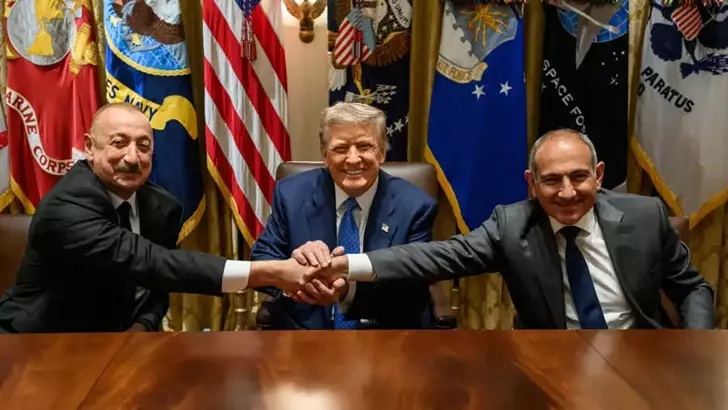 MISREADING THE ARMENIA-AZERBAIJAN PEACE PROCESS THROUGH THE DIASPORA LENS
MISREADING THE ARMENIA-AZERBAIJAN PEACE PROCESS THROUGH THE DIASPORA LENS
Mehmet Oğuzhan TULUN 13.02.2026 -
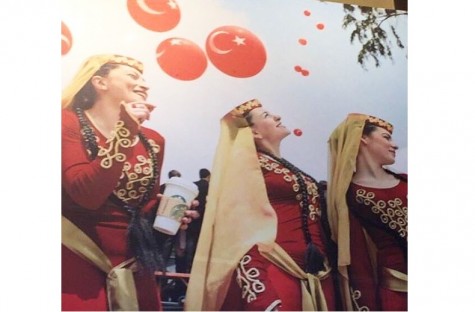 STARBUCKS SUCCUMBS TO IGNORANT ANTI-TURKISH PROPAGANDA
STARBUCKS SUCCUMBS TO IGNORANT ANTI-TURKISH PROPAGANDA
Mehmet Oğuzhan TULUN 19.02.2015 -
 NAGORNO-KARABAKH AND CRIMEA: A COMPARISON OF DOUBLE STANDARDS
NAGORNO-KARABAKH AND CRIMEA: A COMPARISON OF DOUBLE STANDARDS
Mehmet Oğuzhan TULUN 31.03.2014 -
 THE FIGHT AGAINST EXTREMISM AND THE OTTOMAN LEGACY
THE FIGHT AGAINST EXTREMISM AND THE OTTOMAN LEGACY
Mehmet Oğuzhan TULUN 11.05.2022 -
 RELIGION AND DOUBLE STANDARDS
RELIGION AND DOUBLE STANDARDS
Mehmet Oğuzhan TULUN 20.04.2016
-
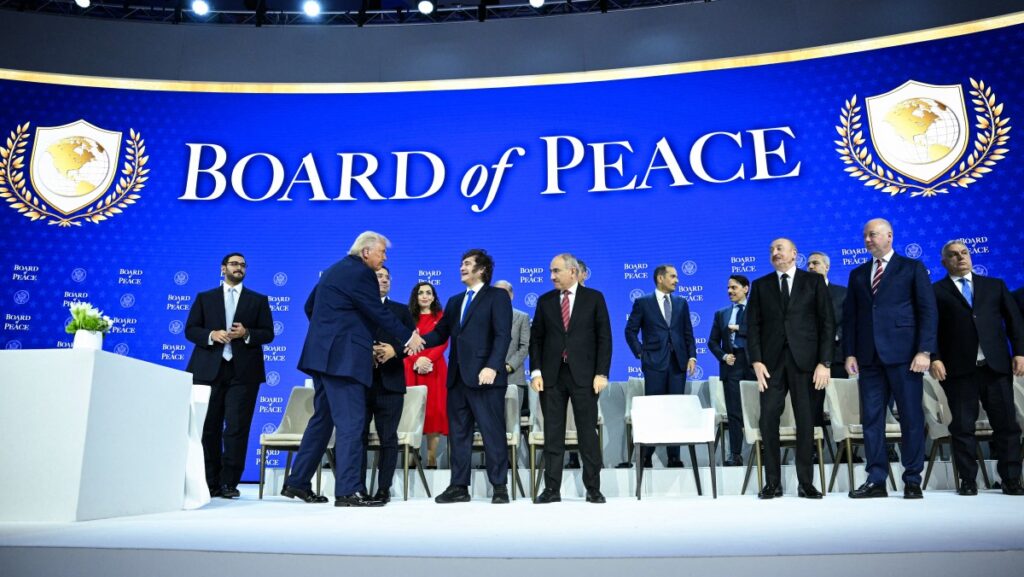 ROMANIA, THE BLACK SEA, AND THE LIMITS OF STRATEGIC SUBSTITUTION
ROMANIA, THE BLACK SEA, AND THE LIMITS OF STRATEGIC SUBSTITUTION
Teoman Ertuğrul TULUN 12.02.2026 -
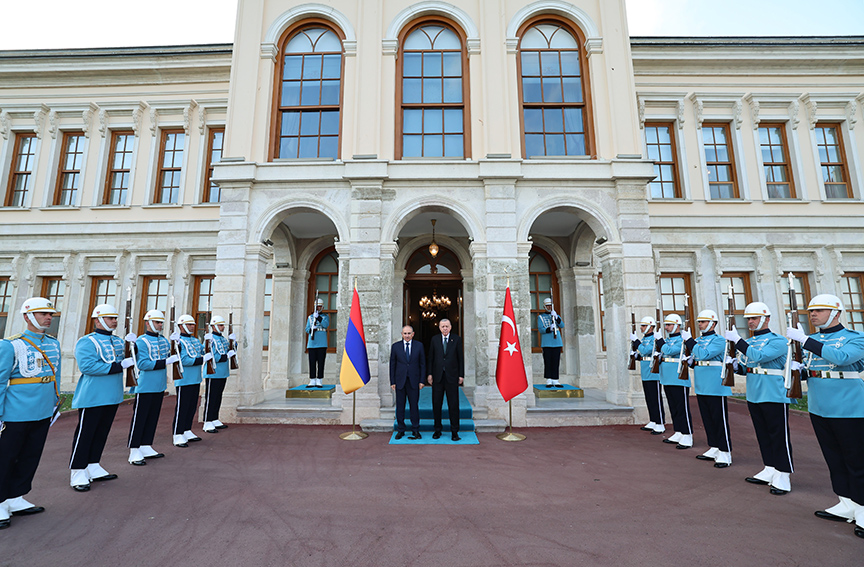 PASHINYAN'S WORKING VISIT: A STEP FORWARD IN THE TÜRKİYE-ARMENIA NORMALIZATION PROCESS
PASHINYAN'S WORKING VISIT: A STEP FORWARD IN THE TÜRKİYE-ARMENIA NORMALIZATION PROCESS
Tuğçe TECİMER 27.06.2025 -
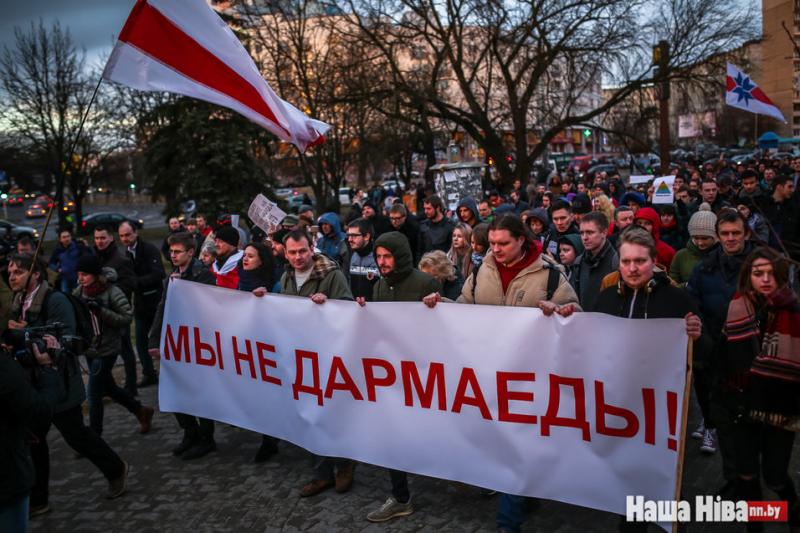 PROTESTS AGAINST THE “SOCIAL PARASITE TAX” IN BELARUS
PROTESTS AGAINST THE “SOCIAL PARASITE TAX” IN BELARUS
Turgut Kerem TUNCEL 24.03.2017 -
 PARADOXICAL COOPERATION: CSTO MEMBER ARMENIA CONDUCTS MILITARY EXERCISES WITH NATO
PARADOXICAL COOPERATION: CSTO MEMBER ARMENIA CONDUCTS MILITARY EXERCISES WITH NATO
Mehmet Oğuzhan TULUN 21.04.2015 -
THE BALKANS – EU – TURKEY
Alev KILIÇ 03.10.2012
-
25.01.2016
THE ARMENIAN QUESTION - BASIC KNOWLEDGE AND DOCUMENTATION -
12.06.2024
THE TRUTH WILL OUT -
27.03.2023
RADİKAL ERMENİ UNSURLARCA GERÇEKLEŞTİRİLEN MEZALİMLER VE VANDALİZM -
17.03.2023
PATRIOTISM PERVERTED -
23.02.2023
MEN ARE LIKE THAT -
03.02.2023
BAKÜ-TİFLİS-CEYHAN BORU HATTININ YAŞANAN TARİHİ -
16.12.2022
INTERNATIONAL SCHOLARS ON THE EVENTS OF 1915 -
07.12.2022
FAKE PHOTOS AND THE ARMENIAN PROPAGANDA -
07.12.2022
ERMENİ PROPAGANDASI VE SAHTE RESİMLER -
01.01.2022
A Letter From Japan - Strategically Mum: The Silence of the Armenians -
01.01.2022
Japonya'dan Bir Mektup - Stratejik Suskunluk: Ermenilerin Sessizliği -
03.06.2020
Anastas Mikoyan: Confessions of an Armenian Bolshevik -
08.04.2020
Sovyet Sonrası Ukrayna’da Devlet, Toplum ve Siyaset - Değişen Dinamikler, Dönüşen Kimlikler -
12.06.2018
Ermeni Sorunuyla İlgili İngiliz Belgeleri (1912-1923) - British Documents on Armenian Question (1912-1923) -
02.12.2016
Turkish-Russian Academics: A Historical Study on the Caucasus -
01.07.2016
Gürcistan'daki Müslüman Topluluklar: Azınlık Hakları, Kimlik, Siyaset -
10.03.2016
Armenian Diaspora: Diaspora, State and the Imagination of the Republic of Armenia -
24.01.2016
ERMENİ SORUNU - TEMEL BİLGİ VE BELGELER (2. BASKI)
-
AVİM Conference Hall 24.01.2023
CONFERENCE TITLED “HUNGARY’S PERSPECTIVES ON THE TURKIC WORLD"









